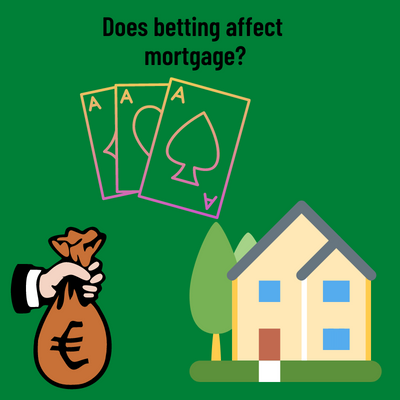
Does gambling affect mortgage?
When banks give out home loans, they believe that the person will be able to pay the money back. They always look at the borrower’s documents, credit history and income. If they see that the person in front of them is an active poker or slots player, this will influence approval. There is a difference between professional players, who regularly wager large sums per month, and casino-goers, who visit non gamstop casinos from time to time. We will tell you below when gambling and mortgages do not go well together.
Does gambling affect mortgage applications?
Professional gamblers can use winnings from poker and other forms of entertainment as proof of regular income. But banks would consider it a risky business, so they are unlikely to record such receipts on a card. But the situation is different if a player occasionally spins the reels at his favourite slot for a fun Saturday night once a month. Poker players will be denied a home loan, but ordinary players are not afraid of such a situation.
According to Mortgage Advice Bureau, the UK’s leading mortgage lending network, some lenders may lend money to buy a house. They will also increase the stake or cut the limit if they find out that there is a casino player in front of them.
Many people are upset that the mortgage is due to gambling. Self-employment also carries its own risks in terms of paying off debt, but bankers see the situation differently. Slots and blackjack are seen as more risky than self-employment. Particularly if one has no savings and debts increase every month.
When will gambling not affect a mortgage application?
When checking a mortgage application, lenders look at bank statements for the previous 3-6 months. Any transfers between the customer and the online casino will be immediately identified. The bank’s main concern is not to issue a loan to an avid gambler who cannot repay on time. If the gambler is betting with his own money and has no debts, the slot machines will not affect the response on the mortgage in any way.
If you bet occasionally, there is no need to worry about whether having a betting account affects the mortgage or not. The banks will check the information, the loan will be granted. A regular source of income and a good credit history are more important to them. If you play the slots occasionally, make deposits using a debit card. This is confirmation that you are betting with your own money, not credit.
What affects getting a mortgage?
Above we’ve worked out if gambling affects mortgage, now let’s work out what factors will affect loan approval. Like gamblers, mortgage lenders do not want to risk their money. Thorough checks on borrowers are justified, especially if a large sum of money is needed and the client does not have much in the way of savings to pay for the home. There are banks in the UK that can turn a blind eye to a customer’s gambling mortgage at an inflated rate. This reduces the risk of defaulting a little. Not the most profitable mortgage will take years to repay.
Other factors that will affect how you qualify for a mortgage loan:
- Low income to pay the loan
- Poor credit rating
- High credit load
- Inaccurate information on the mortgage application form
- Gambling with paying the deposit with a credit card
- Having debts
Do not think about betting affecting mortgage, try now to increase your chances of getting a mortgage loan. To do so, open a savings account at a bank, use other accounts to pay off deposits and casino winnings, pay off debts and improve your credit history. All of this will help you get a home loan in the future. If there is a propensity for gambling and you can’t beat an addiction, you can always use the GamStop self-exclusion programme. The home page has a handy memo on what to do to avoid an addiction.
Minimal inclinations don’t make loved ones, relatives or even the bank uneasy. But a mortgage is another matter. It’s a large amount of debt. And although there is collateral, banks don’t want to take the risk of selling the property if the person can’t pay back the debt.

